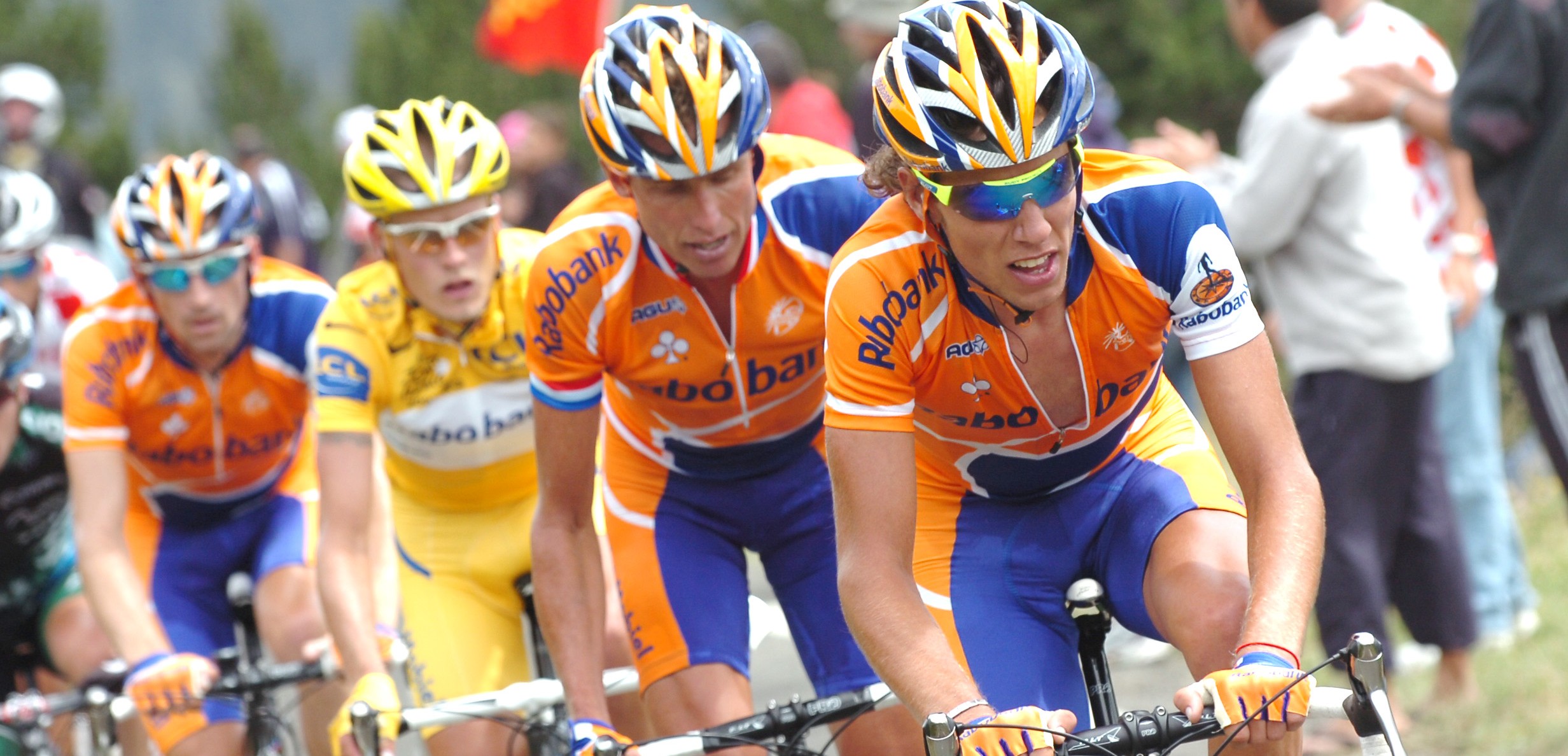

Former Dutch pro rider, Thomas Dekker, has published a book, Thomas Dekker: Mijn Gevecht (My Battle), which details the “doping Culture” within the Team Rabobank during his ten-year stint with the squad.
An excerpt of the book written in conjunction with journalist, Thijs Zonneveld, has been published online by the Dutch site, AD.nl, which outlines how team members took EPO, cortisone, received blood transfusions and used prostitutes during the 2007 Tour de France.
It was the 2007 Tour that saw Rabobank’s Michael Rasmussen take the overall race lead before being ejected from the race while in the yellow jersey for previously lying about his whereabouts for out-of-competition testing.
Tour debutant Dekker, then 22, shared a room with fellow Dutchman Michael Boogerd, and writes about how he and other riders evaded falling foul of dope controls. It was Boogerd’s last Tour, as he retired at the end of the 2007 season – Boogerd admitted in 2013 to using banned performance-enhancing substances during his career from 1997 to 2007.
Boogerd told Dekker during the Tour that he used Dynepo EPO, which he claimed was undetectable. He also used blood bags from the Human Plasma laboratory.
The team found that Boogerd’s haematocrit – percentage of red blood cell volume – was 50 per cent prior to the start of the Tour in London that year, which was right on the UCI limit. Boogerd was told by team doctors to infuse saline at 6am in the morning to dilute his blood and lower his haematocrit to below the 50 per cent limit prior to blood tests.
Dekker writes that he and Boogerd became bored in their hotel in Britain’s capital, so decided to organise some entertainment.
“We’ve pulled together a bottle of wine, but that’s not enough entertainment. Drinks are nice, but women are more fun. And so I go on the internet to find a few escorts.
“At one o’clock at night, there are two Eastern European prostitutes at the door of our room. Michael and I are a bit disappointed: they are a lot less beautiful than the pictures on the site. It is not very glamorous in the middle of the night in a small hotel room. We both choose one.
“We go to sleep for three hours. At six o’clock, the alarm goes off again: Michael has to run a drip of water in his body.”
Dekker says that the Rabobank team in that Tour consisted of him, Boogerd, Rasmussen, Denis Menchov, Oscar Freire, Pieter Weening, Juan Antonio Flecha, Grischa Niermann and Bram de Groot. In a team meeting, Rasmussen says that he feels good and could ride as team leader, aiming for the overall.
“At the team meeting before the start Rasmussen says he wants to win the Tour,” says Dekker. “We need a little laugh. I think it’s great speech. We do not yet know that he lied about his whereabouts, nor that he is up to his neck full of dope – though we suspect it.
“Rasmussen turns out to be right; He’s very good. In the first real mountain stage of the Tour he is already at sixty kilometres from the finish. We only see him again after the finish in Tignes, in the yellow jersey. In the evenings, the atmosphere at the table is great. There is Champagne for everyone.”
Dekker outlines how the celebrations soon became sour, as the truth about Rasmussen’s lies were revealed. They continued to back Rasmussen as he rode in the yellow jersey. However, after the final mountain stage, everything changed. Team manager Theo de Rooij made the call to withdraw Rasmussen from the race in the face of pressure surrounding the Dane’s whereabouts fiasco.
“That Rasmussen has lied: so what?” says Dekker. “We’ve all done things that are not allowed. The team doctors are involved in doping. I’ve never talked about doping with De Rooij, but I cannot imagine that he thinks Rasmussen will win the Tour without doping. He’s not stupid. The policy that he and Erik Breukink [also Rabobank team manager] conduct is at best a kind of tolerance. They demand that we are well in competitions, but they do not know how.”
After the remaining Rabobank riders initially decide to all withdraw from the race, they are persuaded to continue, despite going on a ‘bender’ the night before and suffering from lack of sleep.
“I drag myself for four days to Paris. There was a big party planned after a full yellow train would drive to the Rabobank headquarters, but instead we come together in just a hall in just a hotel in Paris. There is nothing to celebrate.”
Dekker says that the team never spoke about the 2007 Tour again. “Nobody asks us anything. Not De Rooij or Breukink, or the bank. It is never talked about.”
Dekker left Rabobank at the end of 2008 and joined Silence-Lotto for 2009. During July 2009 the news emerged that a re-test of one of Dekker’s samples taken in 2007 tested positive for EPO.
Dekker was subsequently suspended for two years, and returned to competition with the Garmin team, initially as part of its development squad in 2011 then with the WorldTour team in 2012 where he stayed until the end of 2014. He failed to find a team for 2015.



